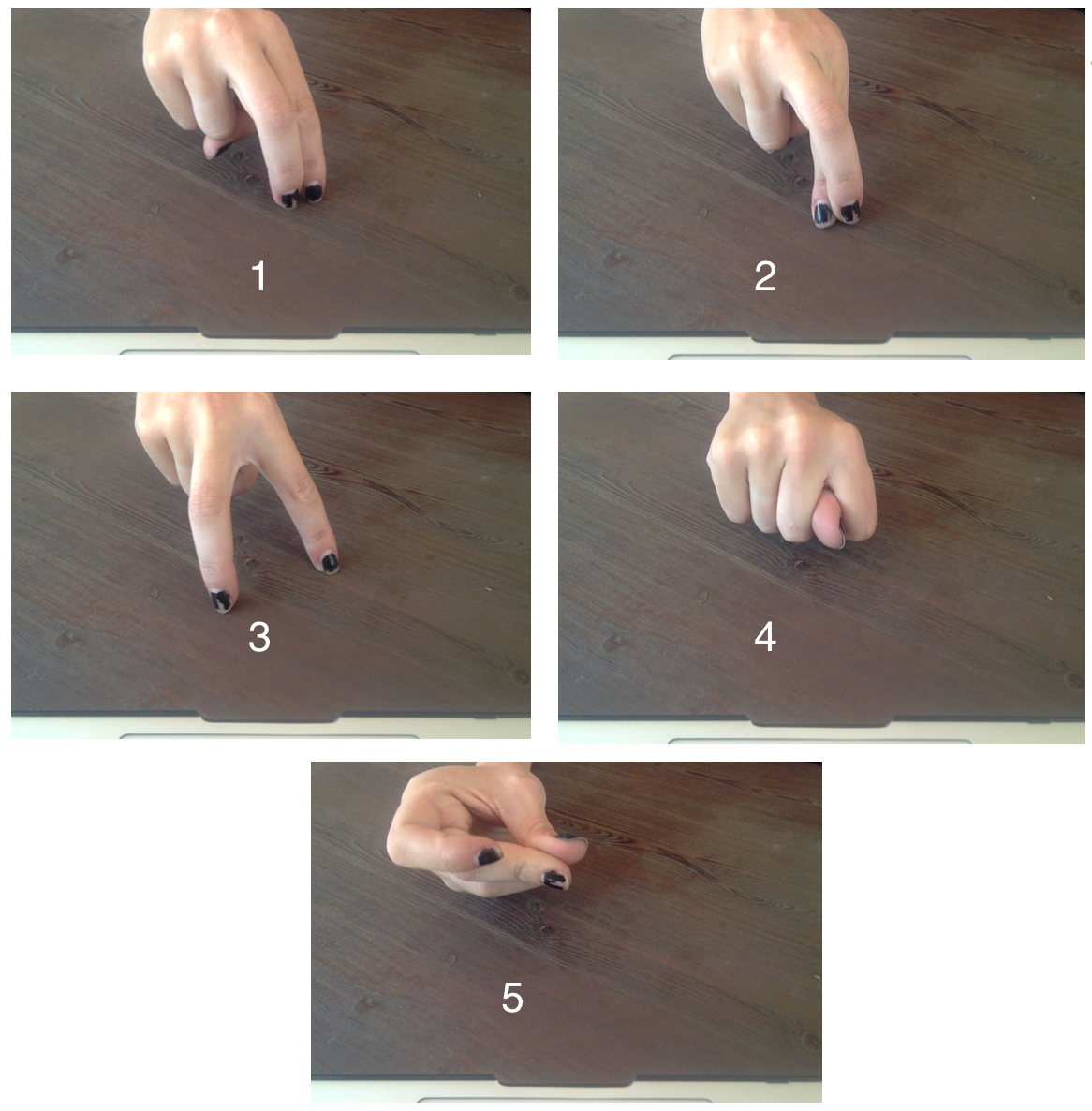Collector’s Note: This child’s hand sign song has a particular hand motion that comes at the end of the first two sentences. It is followed by two more gestures within the second sentence after the word “this”. It is best to first read the song straight through and later refer to each sentence’s number and timing of hand motion while viewing the corresponding pictures in order.
“Good girls sit like this. (1)
Catholic girls sit like this. (2)
Girls who sit like this, (3)
get this, (4)
like this. (5) *snap* ”

Context: This piece was collected at the childhood home of a friend of the collector from both elementary and middle school after speaking about their friendship as children.
Informant Analysis: While in elementary school around the age of 10, she remembers that girls would sing this song with the corresponding hand gestures to each other during recess. She said that it is “weird” to look back on that hand game since it seems to represent the sexual activity of women through stereotypes and body position. She recited the meaning as, “if you are a good girl, you keep your legs closed. If you are a Catholic girl, you really keep your legs closed by crossing them. If you are a bad girl, you sit with your legs apart, which for some reason means you will get d**k quicker? I mean, that is essentially what it says, but it says it politely.”
At the young age of when they preformed the hand game, she said that it was not necessarily considered to be sexual in nature, but more of a fun sign language you could teach other girls. She recalls that she never had seen a boy make the hand gesture and song while in elementary school, as it seemed to be like a secret code/handshake between girls. The informant was uncertain as to who taught her the game, but guessed that it was a friend. She also could not remember if this hand game was ever shared with adults, but believed it was probably not. Even though at the time they did not view the hand game as sexual, they did understand that if adults saw it, they would be punished, and they “did not want to get in trouble.”
Collector Analysis: Being a participant in this folk gesture/song/game, there were a few key aspects that I had not noticed until interviewing the informant. It is easy to assume that this hand game is a way to teach young girls to suppress their sexuality with, what could be considered, the goal of having fewer teen pregnancies. This would imply that adults with knowledge of the effects of teen pregnancy would have to be the root of this piece. Another viewpoint is that the hand game is a way young girls teach each other about the image one presents to the world and it’s importance in not becoming promiscuous (perhaps an antecedent form of slut-shaming). However, I do not believe these interpretations to be the most nuanced if we take into account that the actual piece never mentions girls sitting with their legs open as being “bad” as the informant said.
We can also note that the hand game was played only between young girls. The explicit nature of the content may have something to do with why this piece is gender segregated. It could be that there may be a level of shame that perhaps young boys do not encounter as harshly with regard to their own sexual activity. However, there must be more to the gender segregated sharing of this piece since the young girls did not fully understand the meaning of the hand game at the time. Therefore, I argue that the gender segregated sharing could not only be the sexual shame that often occurs for women as they hit puberty. What the informant referred to as a secret code or handshake seems more probable a source to create the gender segregation. The hand game gives young girls, upon the sudden awareness of gender in elementary school, a way to form a group or friendship around gender commonality. Thus, the performance of the hand game would be an expression of being in the group by having intimate knowledge of their particular gestures.
Lastly, the game itself explicitly refers to girls while never mentioning the male gender except through a crude phallic symbol. To this extent, it is very much a childish thought to represent men only as their sexual organ while also only referring to it as “this” (perhaps taboo word). The game’s proliferation among girls occur by virtue of the excitement in referring to a taboo subject or word among children.



